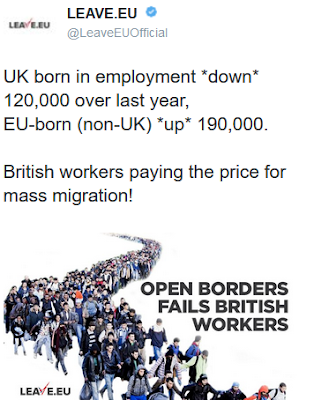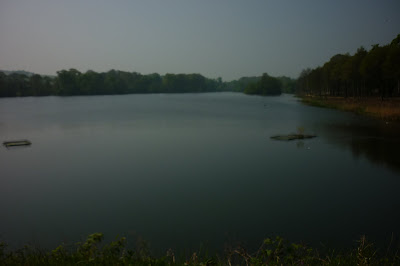****
I am worried. I appreciate that some may not see it my way but I really do prefer my bishops – when they comment on the political world – to have at least some connection to truth and reality. Sadly the Archbishop of Canterbury has lost this connection somewhere in his beard.
"With remarkable speed, we are being committed to radical, long-term policies for which no one voted," he writes. "At the very least, there is an understandable anxiety about what democracy means in such a context."
There are two ways to respond – the first one is to point out that, in our electoral system we vote for people not policies. But I suppose that might get the riposte – “why do political parties have manifestos then?” So there is a second response which is to ask – “so tell me, Your Grace, what policies did people vote for then?”
The Archbishop cites some policies – such as education:
"[T]he comprehensive reworking of the Education Act 1944 that is now going forward might well be regarded as a proper matter for open probing in the context of election debates."
Strangely enough Your Grace, by this very statement you have undermined your own argument. The idea of ‘free schools’ was in the Conservative Manifesto as was the need to do something to support schools in maintaining discipline and to make changes to the national curriculum. As to the continuing academy programme – that was legislation passed by the previous Labour Government, of course.
While the “we didn’t vote for this” line can be argued, the Archbishop’s comments on education policies are simply wrong. The proposed changes were probed “in the context of election debates”. For example
here between “experts” and
here between politicians. So you’re talking rubbish, Archbishop.
And then welfare. Here the Archbishop simply invents a straw man and attacks it with vigour:
Williams also launches a sustained attack on the government's welfare reforms, complaining of a "quiet resurgence of the seductive language of "deserving" and "undeserving" poor". In comments aimed at the Work and Pensions Secretary, Iain Duncan Smith, the Archbishop criticises "the steady pressure" to increase "punitive responses to alleged abuses of the system"
A
new YouGov poll for Channel 4 News yesterday found strong public support for many of the government’s planned cuts to benefits. 73% of respondents supported the idea of making the long term unemployed do compulsory work placements or risk losing benefits, 66% supported withdrawing jobseekers allowance from people who turn down job offers or interviews, 69% supported more stringent testing of people claiming disability living allowance and 68% supported capping housing benefit at £400 a week, “even if this means people are forced to move house if they live in an area where the rent is high”. In all these cases the policies weren’t just popular amongst Conservative and Liberal Democrat supporters, they were also backed by a majority of Labour voters.
I appreciate that popular doesn’t equate to right but that polling – whatever you think of opinion research – does indicate something of a popular mandate for the policies being pursued. And making up opinions for Iain Duncan Smith (who I’m sure can arrive at an opinion without ecclesiastical assistance) simply doesn't look well on a bishop.
Finally, there’s the “Big Society”:
The Archbishop also questions David Cameron's "big society" agenda, a phrase which he describes as "painfully stale". He writes that the policy is viewed with "widespread suspicion" as an "opportunistic" cover for spending cuts, adding that is not credible for ministers to blame the last Labour government for Britain's problems.
Yet again we see the bishop simply parading his ignorance. Perhaps this is because he wasn’t listening when David Cameron first talked of the “Big Society”. However, the Archbishop has changed his tune just a little.
Last September he had this to say on Newsnight:
"The positive side of the big society agenda in the present Government's language is I think not just about saving money or cutting corners - it's about some kind of effort to get hold of a strong sense of civic responsibility".
Maybe also the Archbishop spends too much time with the great and good rather than among ordinary people. On Tuesday evening I was at a Neighbourhood Forum in
Denholme witnessing the big society:
· The Town Council were recruiting volunteers to run the library – not just taking over from the Council but extending the hours and the services
· A call was made for more volunteer drivers for the community transport scheme – taking the infirm, disabled and isolated to appointments, shopping and to the hospitals
· The Community Association briefed the meeting about plans – at an early stage – to take over running the Mechanics Institute from the Council
This, dear Archbishop, is the ‘Big Society’ – it really is that simple. Perhaps you should get out of Lambeth Palace and into the real world once in a while – you might just learn something about people.
It seems to me that the Archbishop should check his facts and try to adopt a logical approach to argument. Or maybe just stick to god-bothering and marrying princes.
....




